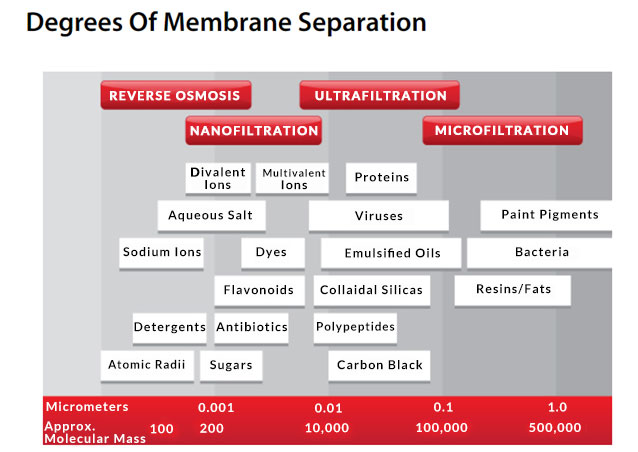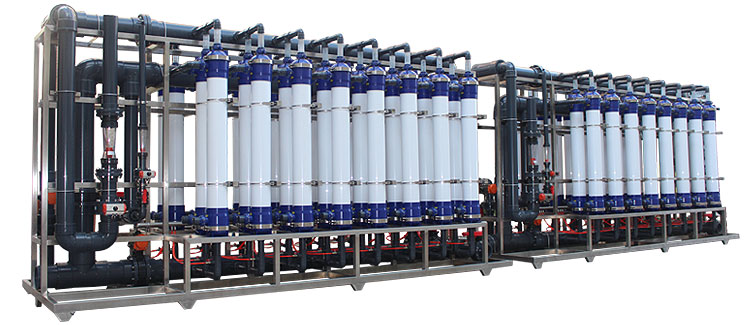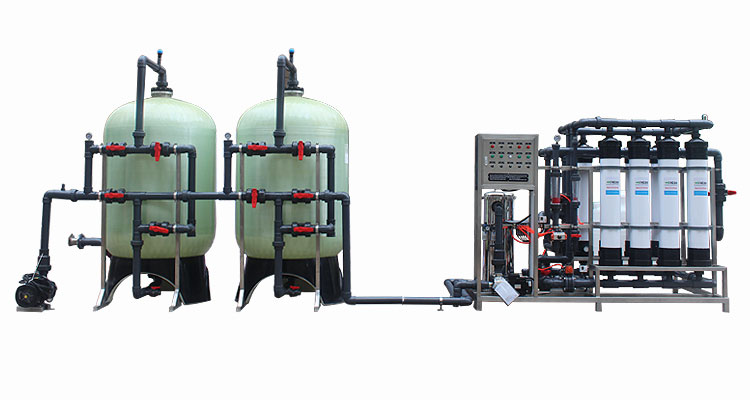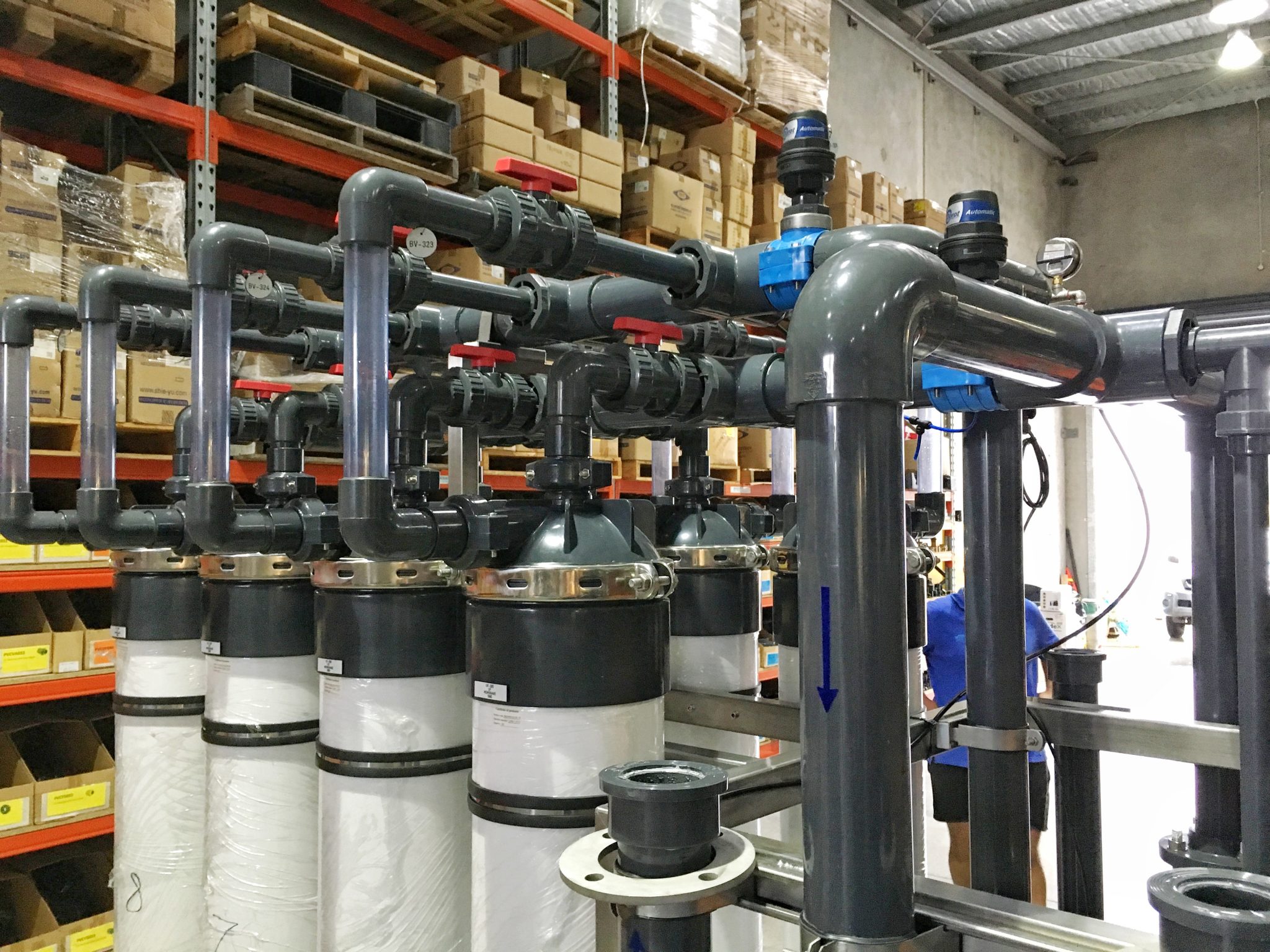What are the industrial uses of ultrafiltration systems?
As an advanced water treatment technology, ultrafiltration technology has a wide range of industrial applications, especially in the advanced treatment of printing and dyeing wastewater, papermaking wastewater, oily wastewater, heavy metal wastewater, food wastewater and other fields. Below we will introduce in detail the specific uses of ultrafiltration systems in industry.
5 industrial uses for ultrafiltration systems
1. Printing and dyeing wastewater
2. Papermaking
3. Oily wastewater
4. Heavy metal wastewater
5. Food wastewater and other fields

The first is the treatment of printing and dyeing wastewater. The printing and dyeing industry is an important source of water pollution, and its wastewater contains a large amount of dyes, chemicals and other harmful substances. Ultrafiltration systems can effectively remove organic particles and pigment particles from wastewater, thereby purifying water quality and protecting the environment.
The second is the treatment of papermaking wastewater. The wastewater generated during the papermaking process contains a large amount of fiber, impurities and chemicals, causing serious pollution to the environment. Ultrafiltration systems can effectively separate and filter suspended solids, dissolved solids and particulate matter in wastewater, purify wastewater and meet discharge standards.
The third step is the treatment of oily wastewater. The oily wastewater produced in industrial production contains a large amount of organic substances such as oils and fatty acids, which causes serious pollution to water quality. Ultrafiltration systems can effectively separate grease and pollutants in wastewater through membrane separation technology, thereby achieving wastewater purification and recycling.
Finally, there is the treatment of heavy metal wastewater and food wastewater. Ultrafiltration systems also have important application value in treating heavy metal wastewater and food wastewater. Through ultrafiltration technology, heavy metal ions and organic substances in wastewater can be removed, protecting the environment, purifying water quality, and achieving effective utilization of resources.

How do ultrafiltration systems work?
Ultrafiltration systems are equipment that uses membrane separation technology for water treatment. Its working principles mainly include the following aspects:
The first is the filtering process. In ultrafiltration systems, wastewater passes through the microporous structure of the ultrafiltration membrane and is blocked by the surface of the filter, thereby separating and filtering out impurities such as suspended matter, particulate matter, and organic matter in the wastewater, leaving only water molecules to pass through to achieve purified water quality. the goal of.
Second is the pressure-driven process. Ultrafiltration systems apply a certain amount of pressure to allow wastewater to pass through the microporous structure of the ultrafiltration membrane, thereby achieving the separation and filtration of impurities. The size of the pressure will affect the permeability rate and separation effect of wastewater.
Finally comes the cleaning and maintenance process. During long-term operation, the ultrafiltration membrane may be contaminated and clogged, and requires regular cleaning and maintenance to ensure the normal operation and processing effect of the system.

How effective is ultrafiltration technology in food wastewater treatment?
Now, let us further explore the application effects of ultrafiltration technology in food wastewater treatment.
Efficient removal of organic matter and microorganisms:
Wastewater generated during food processing contains large amounts of organic matter and microorganisms, posing a threat to water quality. Ultrafiltration technology can efficiently remove organic substances, proteins and microorganisms in wastewater, making the wastewater meet discharge standards and ensuring environmental sanitation and public health.
Reduce pollutant emissions and resource waste:
Using ultrafiltration technology to treat food wastewater can not only reduce pollutant emissions and reduce pollution to water bodies, but also achieve effective utilization of water resources. The water quality after wastewater treatment is clean and can be recycled, saving water resources and reducing waste.
Improve wastewater treatment efficiency and energy conservation and emission reduction:
Compared with traditional chemical treatment methods, ultrafiltration technology has higher treatment efficiency and lower energy consumption. Using ultrafiltration technology to treat food wastewater can reduce energy consumption and the use of chemical agents, achieve energy conservation and emission reduction, and comply with the concepts and requirements of sustainable development.

What are the specific application cases of ultrafiltration systems in treating printing and dyeing wastewater?
Ultrafiltration systems have achieved some successful application cases in treating printing and dyeing wastewater. The following are some typical application cases:
The first is a printing and dyeing wastewater treatment project in a dye factory. The dye factory wastewater contains a large amount of dyes and organic substances. Traditional treatment methods are ineffective and difficult to meet discharge standards. By introducing ultrafiltration systems, the wastewater is treated with ultrafiltration, and dyes and organic substances in the wastewater are successfully removed, which significantly improves the wastewater treatment effect and meets environmental protection requirements.
The second is a printing and dyeing wastewater treatment project in a textile factory. The textile factory produces a large amount of printing and dyeing wastewater during the production process. The wastewater contains a large amount of dyes and impurities. Traditional treatment methods cannot completely remove these organic substances. Through the introduction of ultrafiltration systems, the wastewater was treated with ultrafiltration, and dyes and impurities in the wastewater were successfully removed. The wastewater treatment effect was significantly improved and the discharge standards were met.
What are the challenges of ultrafiltration systems in industrial wastewater treatment?
Although ultrafiltration systems have broad application prospects and importance in industrial wastewater treatment, they also face some challenges and problems.
The first is equipment cost. The equipment costs of ultrafiltration systems are relatively high, including membrane modules, pressure equipment, pipes and accessories, etc. This makes it difficult for some companies to bear their application and operating costs, limiting their promotion and application in some regions and fields.
Followed by membrane fouling and clogging issues. During long-term operation, the ultrafiltration membrane may be contaminated and clogged, affecting the normal operation and processing effect of the system. Regular cleaning and maintenance are required, which increases operating costs and management difficulty.
Finally, there are emission standards and environmental protection requirements. With the continuous strengthening of environmental protection policies and the improvement of environmental protection requirements, industrial enterprises need to continuously improve wastewater treatment technology and water quality compliance capabilities, which poses higher requirements and challenges to ultrafiltration systems.
In summary
Although ultrafiltration systems have some challenges and problems in industrial wastewater treatment, through continuous innovation and technological improvement, these obstacles can be overcome and play an important role in environmental protection and water resource utilization.






